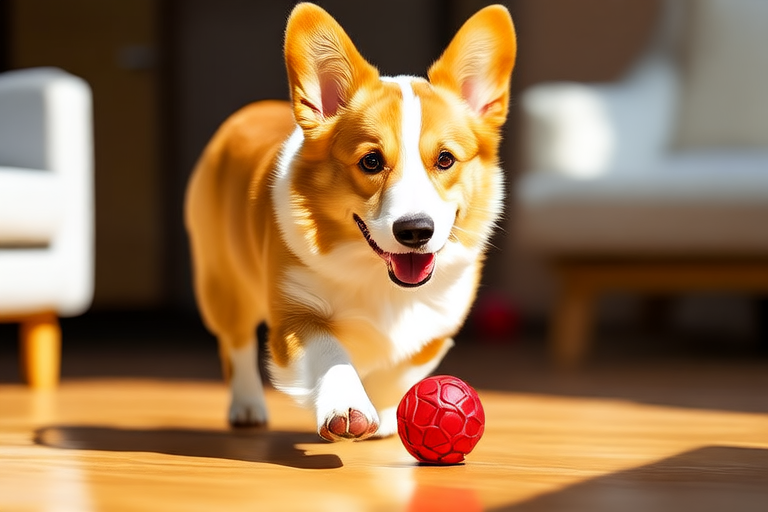The Ultimate Guide to Corgi Happiness: Tips Every Owner Needs
If you’re lucky enough to share your life with a Corgi, you already know these adorable pups are more than just their signature short legs and fluffy butts. They’re intelligent, affectionate, and full of personality—traits that make them beloved companions worldwide. However, keeping a Corgi happy and healthy requires understanding their unique needs and quirks. Whether you’re a first-time Corgi owner or a seasoned pro, this guide will help you ensure your furry friend lives their best life.
Understanding the Corgi’s Personality
Corgis are known for their bold, confident demeanor despite their small stature. Originally bred as herding dogs, they have an innate drive to work and stay busy. This means your Corgi may sometimes act like they’re in charge—even if they’re only 12 inches tall! They’re also incredibly loyal and thrive on human companionship, often forming strong bonds with their owners.
Actionable Tip: Spend quality time with your Corgi every day. Whether it’s cuddling on the couch or playing fetch in the backyard, showing them attention reinforces your bond and keeps them emotionally fulfilled.
Exercise Needs: Keeping Your Corgi Fit and Happy
Despite their compact size, Corgis are high-energy dogs that require regular exercise. Without enough physical activity, they can become overweight or develop behavioral issues like chewing or barking excessively. Aim for at least 30-60 minutes of exercise daily, which can include walks, playtime, or even agility training.
Actionable Tip: Incorporate variety into their exercise routine. Take them on different walking routes, introduce new toys, or try dog sports like flyball or obedience trials. This keeps their minds engaged while burning off excess energy.
Mental Stimulation: Challenging Their Brilliant Minds
Corgis are whip-smart, ranking among the top 15 most intelligent dog breeds. While this makes them quick learners, it also means they need plenty of mental stimulation to prevent boredom. Puzzle toys, interactive games, and training sessions are excellent ways to keep their minds sharp.
Actionable Tip: Rotate your Corgi’s toys regularly to keep things fresh. Introduce puzzle feeders where they have to “work” for treats, or teach them new tricks using positive reinforcement techniques like clicker training.
Grooming: Maintaining That Fluffy Coat
Corgis have a double coat designed to protect them from harsh weather conditions. While beautiful, this thick fur requires consistent grooming to prevent matting and shedding. Brush your Corgi at least two to three times a week, increasing frequency during shedding seasons (spring and fall).
Actionable Tip: Invest in a high-quality slicker brush and undercoat rake to tackle tangles and loose hair effectively. Regular baths (every 4-6 weeks) and nail trims will also keep your pup looking and feeling great.
Nutrition: Fueling Their Active Lifestyle
A balanced diet is crucial for maintaining your Corgi’s health and happiness. Look for high-quality dog food rich in protein, healthy fats, and essential nutrients. Because Corgis are prone to obesity, monitor portion sizes carefully and avoid overfeeding.
Actionable Tip: Consult your veterinarian to determine the right type and amount of food based on your Corgi’s age, weight, and activity level. Supplement their meals with occasional fruits and veggies like carrots or blueberries for added nutrition.
Socialization: Helping Them Thrive Around Others
Early socialization is key to raising a well-adjusted Corgi. Expose them to different people, animals, sounds, and environments from a young age to build confidence and reduce anxiety. Socialized Corgis tend to be friendly and adaptable, making them great family pets.
Actionable Tip: Enroll your Corgi in puppy classes or visit dog parks to give them opportunities to interact with other dogs. Always supervise interactions to ensure safety and positive experiences.
Training Tips: Building Good Habits
Corgis are eager to please and respond well to positive reinforcement methods like praise, treats, and playtime rewards. Start training early to establish good habits, focusing on basic commands like sit, stay, come, and leave it. Consistency and patience are key.
Actionable Tip: Keep training sessions short (5-10 minutes) and fun to hold their attention. Use high-value treats like chicken or cheese to motivate them, and always end on a positive note.
Creating a Safe Environment: Protecting Your Pup
Corgis are curious by nature, so it’s important to create a safe home environment. Remove hazards like toxic plants, electrical cords, and small objects they might swallow. Additionally, secure outdoor spaces to prevent escapes, as Corgis have been known to wander off chasing squirrels or other critters.
Actionable Tip: Use baby gates to block off areas of the house that could pose risks, such as stairs or rooms with fragile items. Consider microchipping your Corgi and ensuring they wear a collar with updated ID tags for added peace of mind.
Fostering a Strong Bond: The Heart of Corgi Happiness
At the core of Corgi happiness is the relationship they share with their owner. These dogs crave connection and thrive when they feel loved and valued. Spend time learning your Corgi’s preferences, whether it’s a favorite toy, a specific spot for belly rubs, or a particular tone of voice they respond to.
Actionable Tip: Practice mindfulness when interacting with your Corgi. Put away distractions like phones or laptops during playtime and focus solely on them. This undivided attention strengthens your bond and shows them how much they mean to you.
Conclusion: A Lifetime of Joy Together
Owning a Corgi is a rewarding experience filled with laughter, love, and endless wagging tails. By understanding their unique needs and providing the care they deserve, you’ll set the stage for a lifetime of happiness for both you and your furry companion. Remember, a happy Corgi is one who feels loved, challenged, and secure—a true testament to the joy these remarkable dogs bring into our lives.
So go ahead, spoil your Corgi with belly rubs, long walks, and endless cuddles. After all, there’s no better feeling than seeing those big ears perk up and that tail start wagging because they know you’re there for them.
